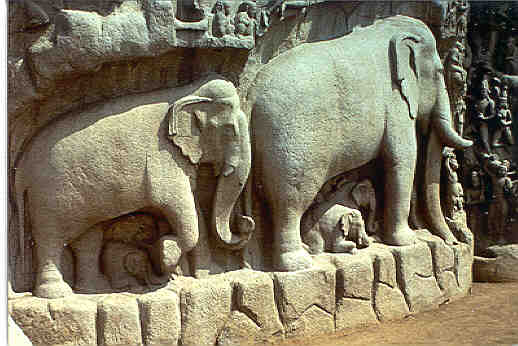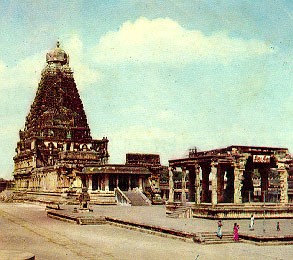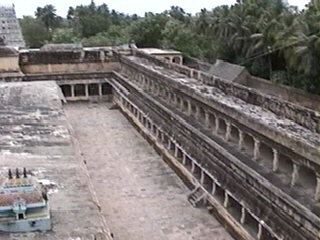Thousands of temples with lofty towers
dot the skyline of the entire state of Tamilnadu. The Tamils have been the greatest of
temple builders. Temples from the pre Christian era as well as those from the 20th century
exist in this state, where the ancient rulers have made outstanding contributions to the
growth of these monuments of great artistic value.
The most ancient temples were built of
brick and mortar. Upto about 700 CE temples were scooped out of rocks. The Pallava
Kings (upto 900) were great builders of temples in stone.

The Cholas (900-1250
AD) have a number of monuments to their credit. Mention must be made of the Brihadeeswarar
Temple in Tanjavur. The Cholas added many ornate mandpams or halls to temples and
constructed large gopurams - towers.

The Pandya Style
(Upto 1350 AD) saw the emergence of huge towers, high wall enclosures and enormous towered
gateways. The Vijayanagar Style (1350 - 1560 AD) is noted for the
intricacy and beauty especially for the decorated monolithic pillars. The Naik
style (1600 - 1750 AD) is noted for the addition of large prakarams
(circumambulatory paths) and pillared halls.

The above is a rather terse
description of the Dravidian temple styles found in Tamilnadu. The age of
a temple could be determined from the architectural features exhibitied by it, as well as
from references to it in ancient literature.
The Sangam period literature of the
pre Christian era refers to some temples. The songs of the revered Saivite
Saints (Nayanmars) and the Vaishnavite Alwar Saints that
date back to the period 7th to the 9th century CE provide ample references to the temples
of those days, and these are a valued source of reference in estimating the age of
temples.
In addition, stone inscriptions found
in most temples throw a lot of light on the history , and on the patronage extended by
various rulers.
